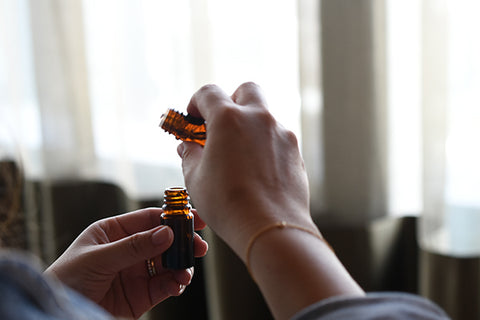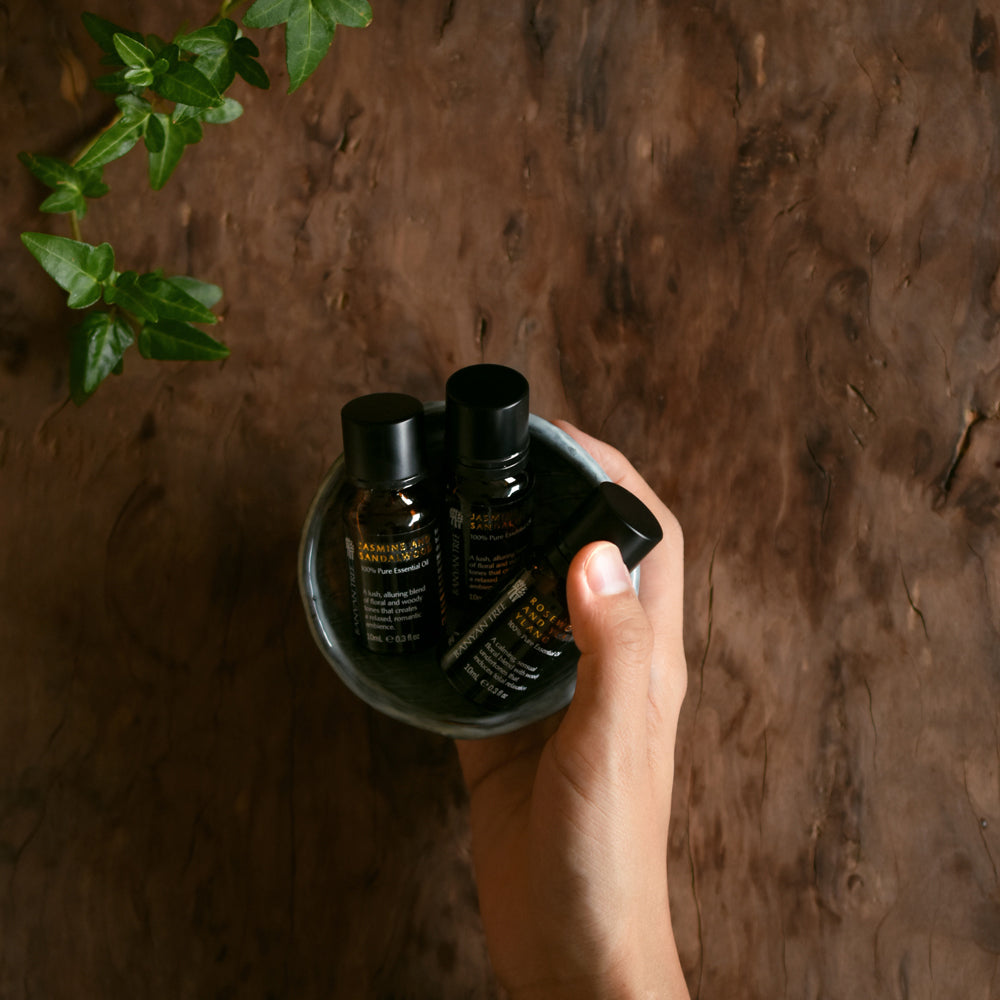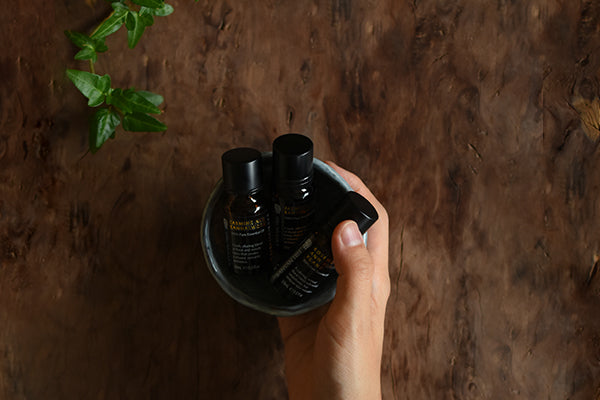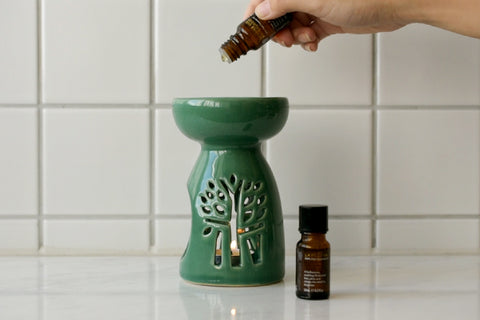Undiluted, or also commonly known as “neat”, application of essential oils on skin is a topic with many divided opinions. Many blogs debate the issue, often offering a variety of personal anecdotes. The general consensus among professional aromatherapists is that you should not apply undiluted essential oils onto skin, unless professionally advised and guided to do so.
In this blog post, we discuss why and how to apply essential oils on your skin, safely.
 Very large quantities of plants go into a single pound of essential oil.
Very large quantities of plants go into a single pound of essential oil.
Why dilute essential oils?
Robert Tisserand, a leading aromatherapist and a recognised authority in the industry advises, “Do not apply undiluted essential oils to your skin... The most common adverse reaction, experienced by hundreds, possibly thousands of people every year, is skin reaction, and the most common cause is using an undiluted essential oil.”1
Because essential oils are distilled from plants, many make the mistake of assuming its safety when applied directly on skin or even ingested. However, the primary concern of consuming essential oils lies not in its chemical makeup but in its concentration. Very large quantities of plants go into a single pound of essential oil: 250 pounds of lavender, 10,000 pounds of rose petals and 1,500 lemons, to name a few. The resulting potency of essential oils is why professionals are trained to dilute, preventing adverse, and sometimes even toxic reactions.
As confirmed by Tisserand, “essential oil in a bottle is 50–100 times more concentrated than in the plant, and safety issues apply to essential oils that may not apply to the whole plant or herbal extract.”2

Dilution is done with carrier oils, they are named as such because of their purpose of carrying the essential oil onto the skin.
How do I dilute essential oils?
Dilution is done with carrier oils, which are vegetable oils “derived from the fatty portion of a plant, usually from the seeds, kernels or the nuts.”3 They differ from other forms of oils like mineral oils, and are named as such because of their purpose of carrying the essential oil onto the skin.
Essential Oil Safety, an aromatherapy textbook used by aromatherapy practitioners internationally, recommends a 2% essential oil dilution for “topical application of essential oils on adults when an essential oil does not have a more restricted dermal recommendation.”4
This means that for most essential oils and skin types, it is generally safe to follow the 2% dilution rule. Wendy Robbins, founder of AromaWeb and an aromatherapist of nearly 25 years, advises the following method of calculating the number of drops you need to be using:

According to the Tisserand Institute, the dilution rule can also change based on what you are using the essential oils for, so refer to the following and adjust your calculations accordingly:
- Facial cosmetics: 0.2-1.5%
- Body massage: 1.5-3%
- Bath & body products: 1-4%
Robert Tisserand additionally warns that especially for baths, unlike what many essential oil enthusiasts believe, simply adding essential oils to water is unsafe.
Essential oils are still oils, meaning that they are not water soluble, “so pouring them directly into a bath will result in a film of undiluted essential oils sitting on top”5. The warmth of the bath water will further cause the essential oils to heat up, resulting in adverse dermal reactions for some. Therefore, it is especially important to dilute essential oils well first. It is also important for the essential oils to be dispersed.
Are all carrier oils generally the same?
There are many types of carrier oils. Some commonly used ones include sweet almond oil, virgin coconut oil and jojoba oil. However, not all carrier oils behave the same way when mixed with essential oils, nor do they have the same properties.
Carrier oils that contain tocopherols (Vitamin E), for example, act as antioxidants, meaning they can extend the shelf life of the oil, while oils that contain essential fatty acids can have the opposite effect, making the oil prone to quicker rancidity. Carrier oils also differ in the type and amount of nutrients that they contain, their viscosity (thus affecting how they feel on your skin) and their aroma (thus affecting how they smell when mixed with essential oils)6. All these factors should play a part in your selection of carrier oils.
Is dilution always necessary?
The only situation in which diluting essential oils is not necessary is when you are diffusing them into the air. When doing so, it is generally advised to read the instructions that come with your diffuser, as each brand and model of diffuser differs. Some require dropping essential oils in water, but almost never require diffusing in any sort of carrier oil.
Ultimately, the practice of diluting essential oils remains extremely important to aromatherapy and should be something that all essential oil enthusiasts are knowledgeable about, such that aromatherapy can be enjoyed without any unpleasant adverse reactions.
References
1. https://www.aromaweb.com/articles/whatcarr.asp
2. https://www.aromaweb.com/articles/dilutingessentialoils.asp
3. https://www.aromaweb.com/articles/whatcarr.asp




